"We are involved in data analysis of the agricultural process. We support farms in correlating climatic, microclimatic, and soil data in order to help them in managing their crops in terms of irrigation, nutrition, defense, and growth prediction. Our aim is to optimize the dynamics of the agricultural process, both in organic and integrated farming. In the latter case, with low residual content."
Davide Parisi, CEO and co-founder of Evja, is talking about OPI, a decision support system for farms based on sensors and predictive algorithms. Evja, an Italian startup born in Naples in 2015, is participated by BayWa and RWA, players of the German and Austrian agricultural markets.
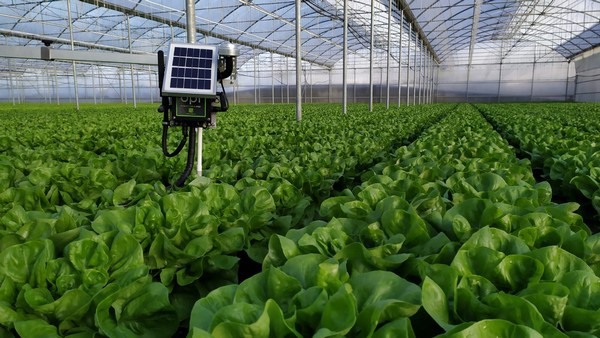
Spinach greenhouses. Photo provided by Evja.
"With yield predictive models we are able to know in advance what is available. This means we can also support companies in their commercial decisions while remaining within the framework of planning. All this is done by exploiting artificial intelligence: the predictive modeling part is supported by Machine Learning technology, which allows the creation of new models and their continuous and constant updating," continues Parisi.
For all of its models, Evja has carried out tests directly in the field for different problems and different crops, and only then incorporated them into agricultural processes. The system can operate in horticulture, fruit growing and is also beginning to test in the flower market. We are talking about crops such as tomatoes, herbs, strawberries, lettuces, baby leaves, cucurbits, and solanaceous plants to name a few. "We have microclimatic stations with sensors for humidity, temperature, light, leaf wetness, volumetric content, and soil electro-conductivity. At the request of the company, we integrate many more.”
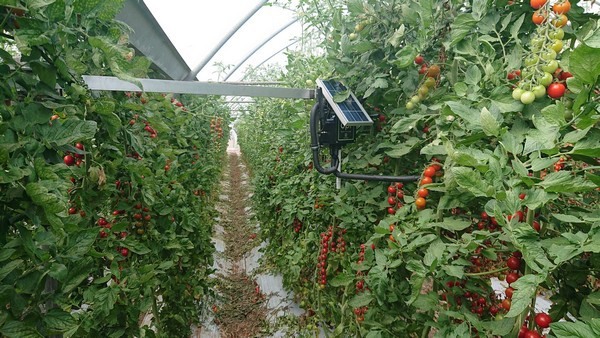
Tomato greenhouses. Photo provided by Evja.
As Evja's CEO explains, "in addition to farms operating in open fields, greenhouses, above ground or in vertical, we also work with research institutes. In the open field, there can be no definite control but our system mainly supports deciding the timing of the different agricultural practices. In the greenhouse, we are able to intervene in climate change and planned irrigation management. Above ground and in vertical farming, everything is automated and parameterized. When all is said and done, the work carried out in the open field and in the plastic tunnel is more stimulating than other forms of cultivation, from a technical, scientific, and commercial point of view. Here, in fact, the variables are uncontrollable, the decision support tool is a real necessity".
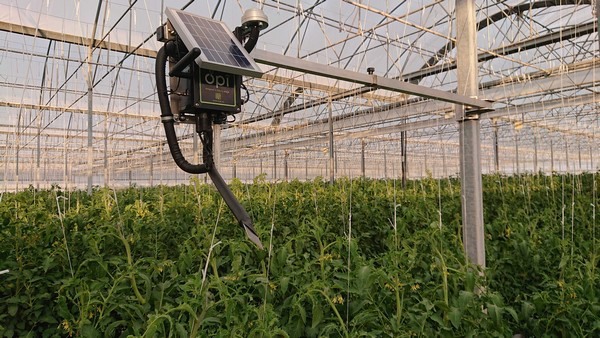
Tomato greenhouse. Photo provided by Evja.
“Today, the great challenge for horticulture is to produce in a sustainable and economic way," continues Parisi. Optimizing processes through data analysis has precisely this aim. It is a decisive weapon for farmers, as their job is becoming more and more complex, and Evja transfers the appropriate skills to them. For greenhouse growers, in particular, the opportunities offered by our OPI system are energy savings, improved product quality, reduced waste in the field, and support in production and marketing decisions.”
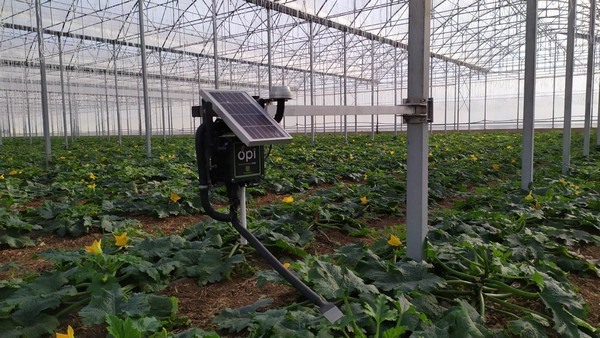
Cucumber greenhouse. Photo provided by Evja.
Applying technology to agriculture does not mean sitting behind a desk in the office all day. "60% of our work takes place in the field. In fact, our motto is that if we don't have dirt on our shoes at the end of the day, we haven't worked today. Experiencing the companies from the very beginning of our adventure has also been our competitive advantage: we have experienced the real problems of the companies first-hand, not just watched them from afar."

Greenhouse of lettuce. Photo provided by Evja.
Climate change
Climate change has been the real driving force behind precision farming. "It's something we've seen evolve year on year. When we started in 2015, it was felt but not very much. As time went on, we noticed how farmers and farms were affected. In itself, farming is a story of the farmer's experiences and what we do is value the memory. While a farmer may know his field well, the variability of climate change means that this knowledge loses value. We turn that value into a number to put into a shared tool."
"Climate change has affected eco-seasonality, which means that sowing and transplanting periods have shifted, as the periods of occurrence of plant diseases. Evja, therefore, creates a data history on the basis of which the farm can make more structured decisions and reduce margins of error. Within 48 hours, we are able to help farmers make their decisions. I would like to stress that we are decision support and we do not predict the future, we are based on forecasting algorithms. In short, we offer the right elements for business risk management".
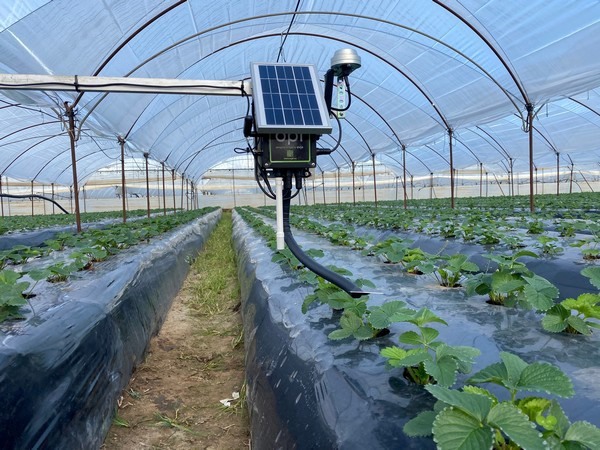
Strawberry greenhouse. Photo provided by Evja.
Increased production costs
In general, process optimization always has to do with an economic dynamic. "If we take the example of the rise in plastic prices, in the tunnels our technology intervenes on the analysis of the transmittance of the plastic covers used, giving the grower an idea of the degree of usage. On the plastic cover, through data analysis, we can therefore give a clear idea of when to replace it," concludes Parisi.
For more information:
Evja
[email protected]
www.evja.eu
